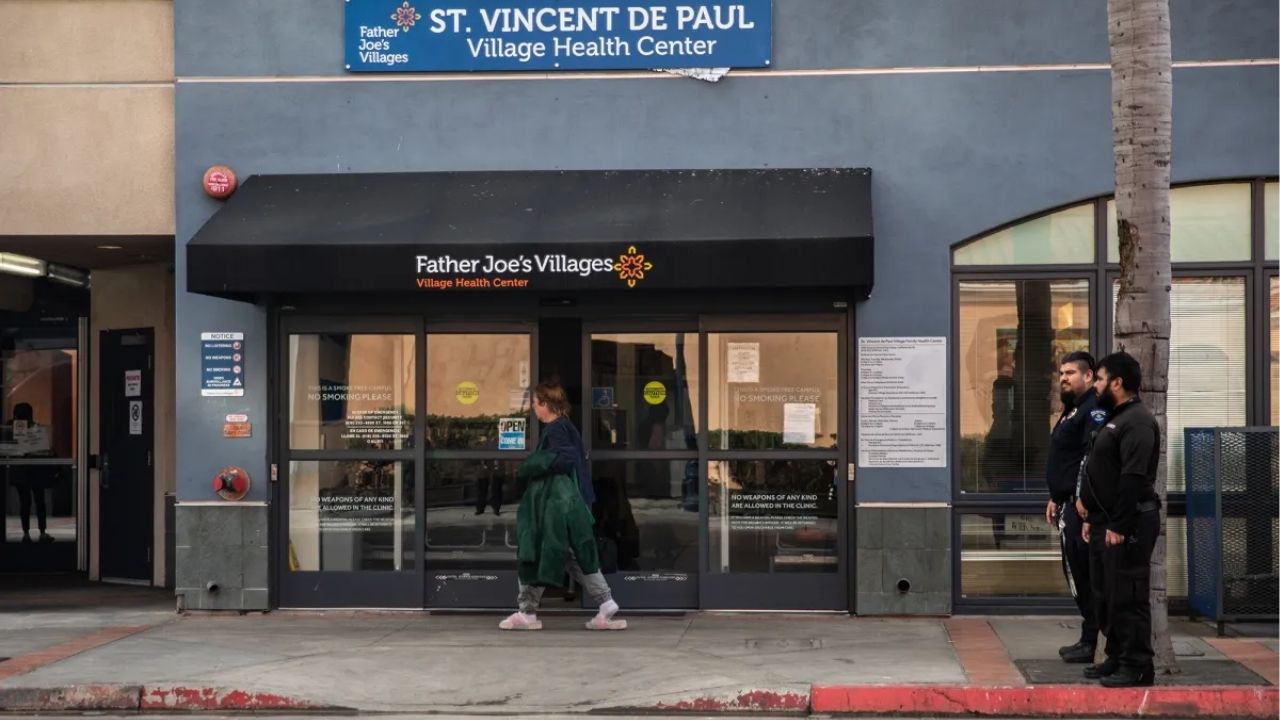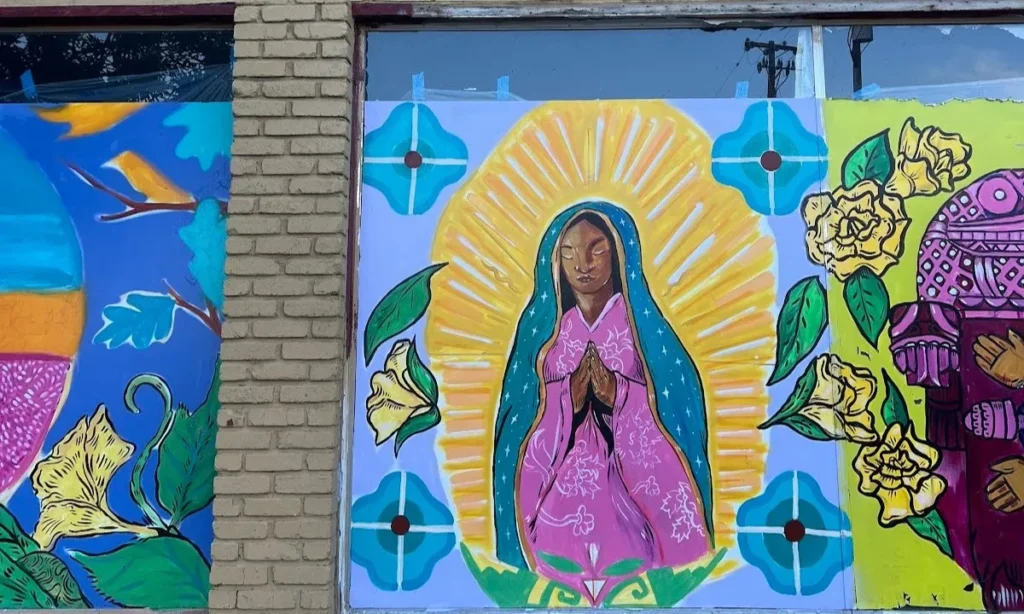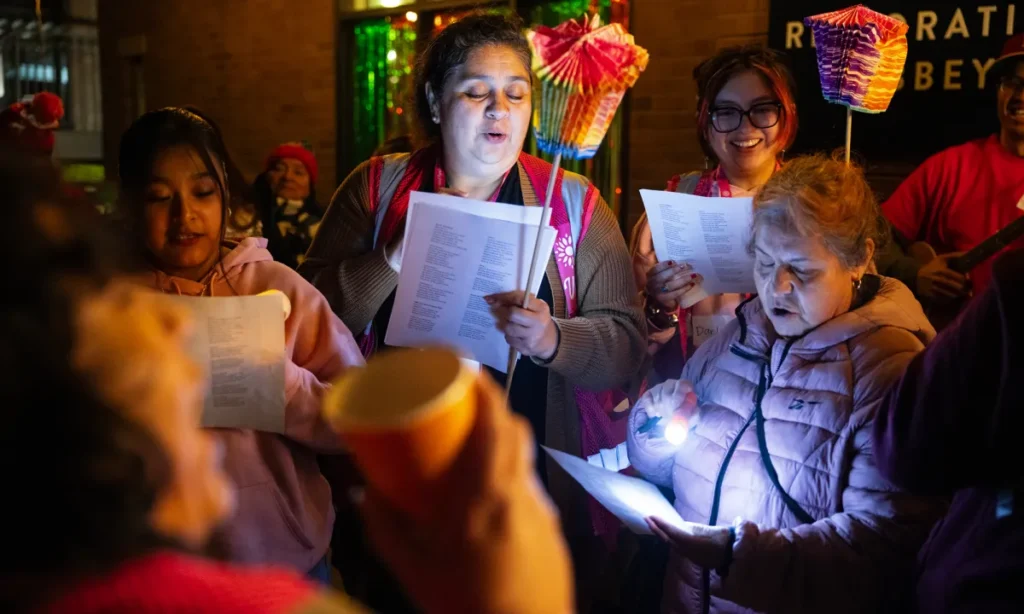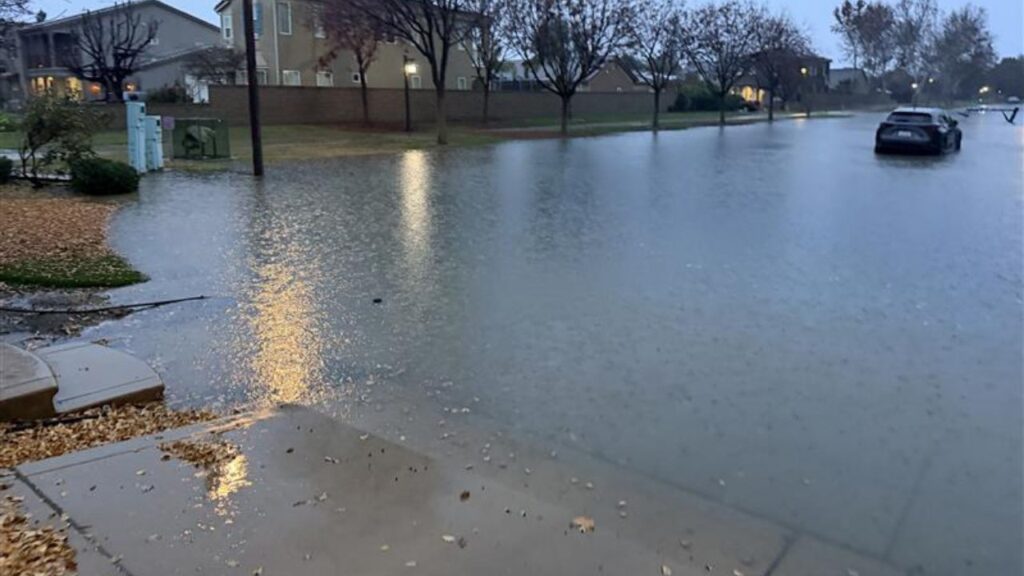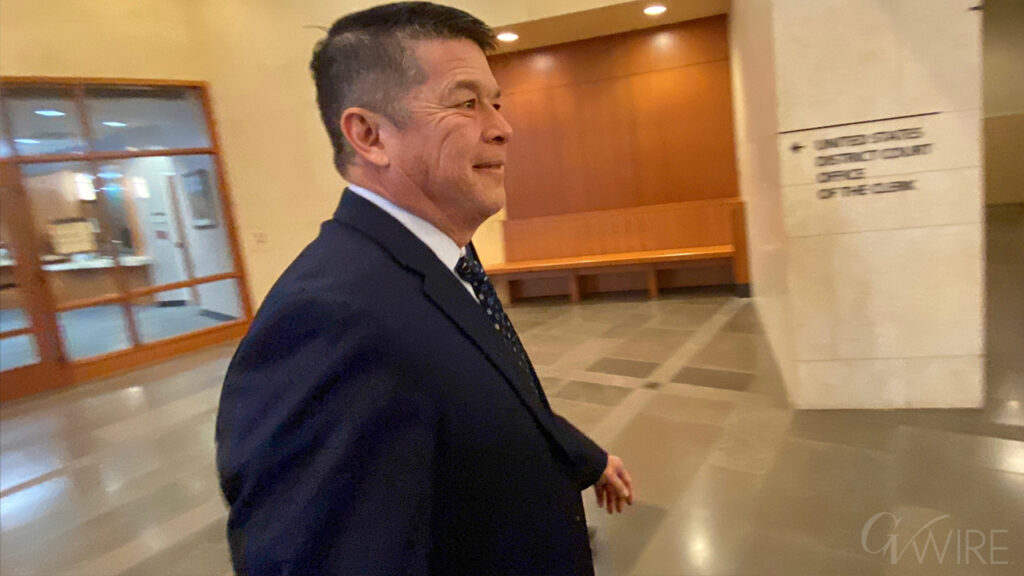The entrance of the St. Vincent De Paul Village Family Health Center at Father Joe’s Villages in San Diego on Jan. 31, 2025. The organization recently unveiled a new detox center at the location. (CalMatters/Adriana Heldiz)

- Gov. Gavin Newsom vetoes sober housing bill, citing duplication and costs, frustrating advocates pushing recovery housing expansion.
- Assemblymember Matt Haney says veto leaves Californians in recovery without safe, drug-free housing options needed to stay sober.
- Debate reflects broader clash between California’s housing first strategy and shifting federal policies under President Trump targeting accountability requirements.
Share
|
Getting your Trinity Audio player ready...
|
This story was originally published by CalMatters. Sign up for their newsletters.
Lawmakers’ efforts to free up state money for sober homeless housing have been thwarted for a second year in a row, after Gov. Gavin Newsom vetoed a bill that had sailed to his desk with few “no” votes.
Assembly Bill 255 would have allowed cities and counties to spend up to 10% of their state funding on “recovery housing,” where people live in a sober environment and work on overcoming an addiction. The move would have tweaked California’s “housing first” strategy, which generally frowns on programs that put up barriers to housing — such as requiring people to stay clean or participate in treatment.

Marisa Kendall
CalMatters
“It’s disappointing that the Governor vetoed AB 255,” the bill’s author, Assemblymember Matt Haney, a San Francisco Democrat, said in a statement. “This bill was about giving people in recovery a real choice to have safe, sober housing when they need it. Californians who are working hard to stay sober are often forced into housing where drug use is allowed, and that puts their recovery and their lives at risk.”
The governor said the bill was unnecessary and would have created a “duplicative and costly new statutory category” for recovery housing. “Recent guidance” already allows cities and counties to spend state homelessness funds on sober housing, Newsom said in his veto message.
That was news to Haney.
“Unfortunately that is not the understanding shared by housing providers themselves, the legislature, the cities, counties and their attorneys, or people seeking recovery housing,” he said in a text to CalMatters. “I hope that the Governor can urgently issue clear guidance that drug-free recovery housing is fully allowed under current law and authorize the use of state funds for these facilities.”
Housing Providers Without Guidance
Without that guidance, housing providers will be unable to move forward on sober living projects, local governments will remain confused and the state will continue its pattern of not investing in sober housing, Haney said.
Newsom’s office did not respond to an email asking for more detail on the state’s policies for funding sober housing.
“California remains committed to advancing recovery housing within Housing First,” Newsom said in his veto message. “I encourage the author and stakeholders to continue working with my Administration to strengthen these options in ways that complement, rather than complicate, the state’s approach.”
The bill would have set up a new system for the state’s housing department to regulate recovery housing, which would have cost an estimated $4.12 million in the first year, according to the Senate Appropriations Committee’s analysis. Recovery programs would have paid a fee for state certification. But those fees, likely amounting to hundreds of thousands of dollars a year, would not entirely offset the state’s costs, according to the analysis.
“I was a little surprised,” Sharon Rapport, California state policy director for the Corporation for Supportive Housing, said of the governor’s veto. “But when I thought about it, I thought it probably did make sense, because part of the bill does require a certification program to be created, and there wasn’t funding for that.”

Rapport’s organization worked with Haney’s office on some amendments to the bill, including reducing the percentage of state funding that can go to sober housing from 25% down to 10%.
Newsom’s Veto Focuses on Original 25% Version
Newsom’s veto message referenced the original 25% version of the bill. His office did not respond to an email asking why he used the old number.
In an effort to adhere to housing first principles, Haney’s bill specified that recovery housing residents wouldn’t be evicted just for relapsing. If they no longer wanted to participate in recovery, they could have continued living onsite until the program operator found them a new place to live.
This was Haney’s second attempt to funnel state money into recovery housing. His first, Assembly Bill 2479, died last year amid worries that it would siphon too much money away from low-barrier housing, and that people might lose their placement if they relapsed.
Since 2016, California has required housing providers to adopt a “housing first” model, which emphasizes getting people into housing even if they are addicted to drugs or alcohol, or struggling with a mental illness. Instead of requiring people to participate in treatment programs as a condition of getting housing, providers offer voluntary services. The idea is to get people housed as quickly and easily as possible, because it’s much easier to tackle someone’s other problems – such as their drug addiction – once the person has a roof over their head.
While both Haney and the governor are attempting to work sober housing into California’s existing housing first strategy, the federal administration, meanwhile, is attempting to blow up the entire policy.
President Donald Trump this summer issued an executive order directing federal agencies to end support for ‘housing first’ policies that “deprioritize accountability and fail to promote treatment, recovery, and self-sufficiency.” It directs those agencies to require people participating in federally-funded housing programs to participate in addiction and mental health treatment.
Haney said he remains a firm believer in housing first.
“I don’t think it is at all intended to help us be more responsive and effective,” he said of the federal policy change. “It’s intended to undermine responses to homelessness and affordable housing.”
—
This article was originally published on CalMatters and was republished under the Creative Commons Attribution-NonCommercial-NoDerivatives license.
RELATED TOPICS:
Categories

Pebble Is a Tiny Adventure Seeker With a Big Heart



